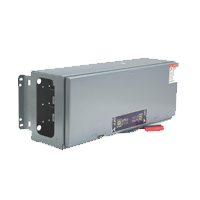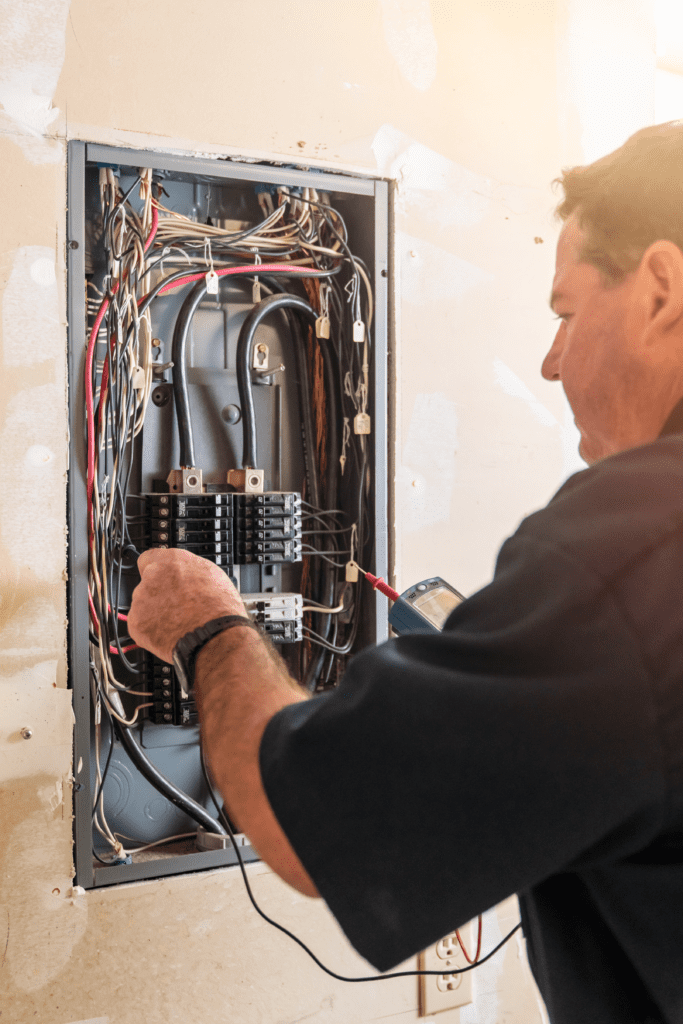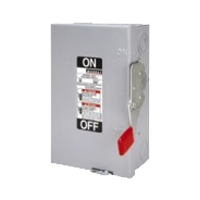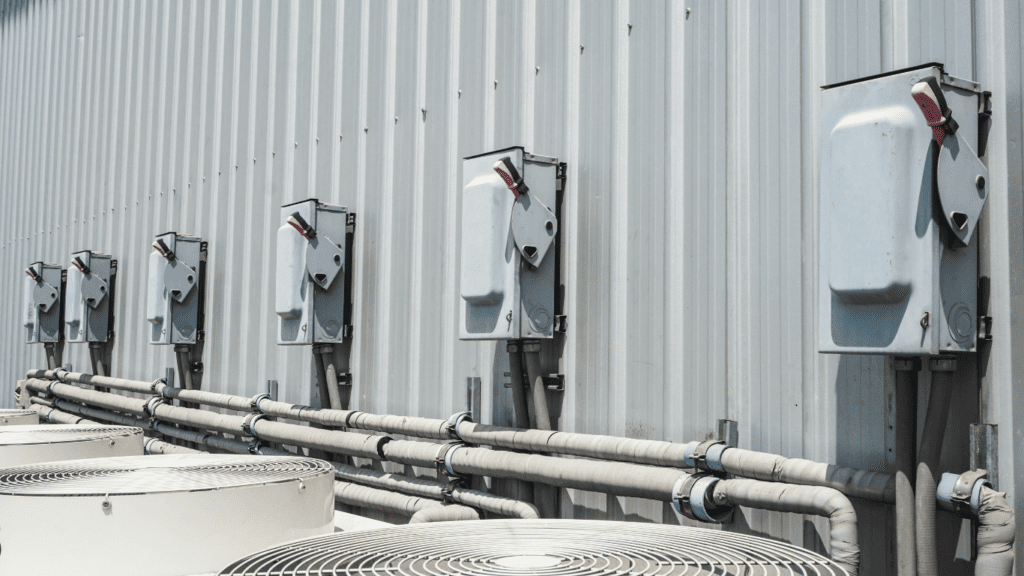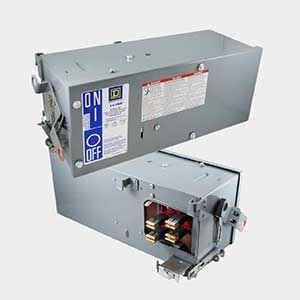What “Reconditioned Breakers” Really Means and Why They Matter
As electrical infrastructure across the U.S. continues to age, sourcing reliable replacement components has become increasingly challenging; especially for discontinued or legacy systems. This is where reconditioned breakers play a critical role.
Reconditioned circuit breakers offer a practical, sustainable, and cost-effective solution for maintaining existing electrical systems without sacrificing safety or performance. But what exactly are reconditioned breakers, and what does “reconditioned” really mean?
This guide breaks it all down, helping you understand how reconditioned circuit breakers work, why they’re a smart option for legacy systems, and how trusted suppliers like ElectriConnection help ensure quality and reliability.
What Are Reconditioned Circuit Breakers?
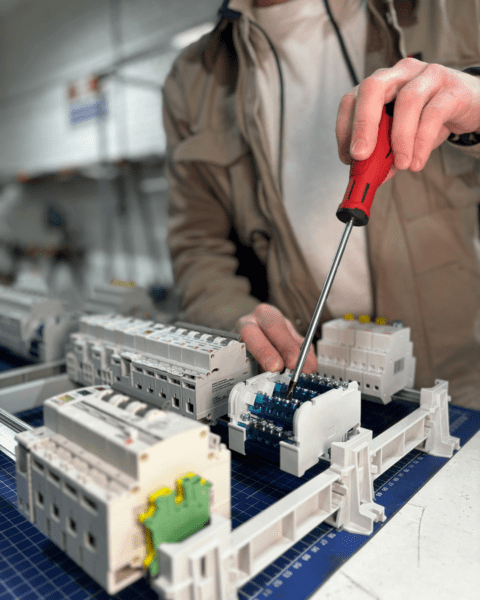
Reconditioned breakers are circuit breakers that have been previously installed or used, then professionally restored to meet strict operational and safety standards. Unlike surplus or “used as-is” components, reconditioned breakers go through a thorough inspection, cleaning, testing, and refurbishment process before being resold.
These breakers are commonly used in:
- Commercial and industrial facilities
- Manufacturing plants with aging equipment
- Hospitals, schools, and municipal buildings
- Data centers and infrastructure with legacy electrical systems
For many facilities, replacing an entire electrical panel or system simply isn’t feasible. Reconditioned components provide a reliable way to keep existing systems operational without costly upgrades.
What Does “Reconditioned” Really Mean?
Not all used electrical components are created equal. The term reconditioned has a very specific meaning in the electrical industry.
When it comes to circuit breakers, the reconditioning process typically includes:
1. Detailed Inspection
Each breaker is visually and mechanically inspected for wear, damage, or missing components. Only breakers that meet strict criteria move forward.
2. Professional Cleaning
Dust, debris, oxidation, and residue are removed using industry-approved methods. This ensures proper operation and heat dissipation.
3. Component Repair or Replacement
Worn or defective parts, such as springs, contacts, or insulation, are repaired or replaced to restore full functionality.
4. Electrical Testing
Reconditioned breakers are tested for proper trip functionality, insulation resistance, and continuity to confirm safe performance.
5. Final Quality Verification
Before resale, breakers are verified to meet or exceed original manufacturer performance standards.
This process ensures reconditioned breakers are safe, dependable, and ready for real-world use.
Reconditioned Breakers vs. Used or Refurbished Breakers
It’s important not to confuse reconditioned breakers with simply “used” or loosely refurbished parts.
- Used breakers are often sold as-is with no testing or restoration
- Refurbished breakers may receive limited cleaning or cosmetic fixes
- Reconditioned breakers undergo a documented, professional restoration process
For facilities where safety, uptime, and compliance matter, reconditioned breakers are the clear choice.
Why Reconditioned Circuit Breakers Are Ideal for Legacy Electrical Systems
One of the biggest advantages of reconditioned breakers is their compatibility with legacy electrical systems.
Many older panels and switchgear were designed around breaker models that are no longer manufactured. Retrofitting or replacing those systems can be extremely expensive, and sometimes impossible without major downtime.
Reconditioned breakers allow facilities to:
- Maintain original system design
- Avoid costly panel replacements
- Minimize operational disruptions
- Extend the life of existing infrastructure
For industries that rely on continuous operation, reconditioned electrical parts are often the most practical solution available.
The Sustainability Benefits of Reconditioned Breakers
Beyond practicality, reconditioned electrical components also offer meaningful environmental benefits.
Choosing reconditioned electrical components helps:
- Reduce electronic waste
- Lower demand for raw material extraction
- Minimize manufacturing-related emissions
- Support a circular economy
Instead of sending usable components to landfills, reconditioning extends their lifecycle, making it a smart choice for companies with sustainability goals.
Cost-Effective Without Compromising Safety
New breakers, when available, can come with long lead times and high price tags. Reconditioned circuit breakers typically cost significantly less while still meeting strict performance standards.
This makes them ideal for:
- Maintenance and repair budgets
- Emergency replacements
- Large facilities with multiple breaker types
- Organizations managing aging infrastructure
When sourced from a trusted supplier like ElectriConnection, reconditioned electrical parts provide long-term value without sacrificing safety or reliability.
Why Sourcing Matters
Not all suppliers follow the same standards when it comes to reconditioned breakers. Proper testing, documentation, and industry knowledge are essential.
ElectriConnection specializes in sourcing, reconditioning, and supplying reconditioned breakers and legacy electrical components. Their expertise ensures customers receive parts that are:
- Thoroughly tested
- Correctly matched to existing systems
- Ready for immediate installation
- Backed by knowledgeable support
When dealing with critical electrical infrastructure, experience matters.
Reconditioned Breakers: A Smart, Sustainable Solution
Reconditioned breakers aren’t a compromise on quality, they’re a strategic and sustainable choice. They support aging systems, reduce environmental impact, control costs, and keep facilities running safely and efficiently.
Whether you’re maintaining legacy equipment, facing discontinued parts, or simply looking for a smarter alternative to new components, reconditioned breakers offer a proven solution.
ElectriConnection continues to be a trusted resource for businesses seeking reliable reconditioned and legacy electrical parts; helping bridge the gap between yesterday’s systems and today’s demands.



